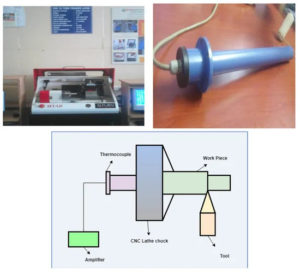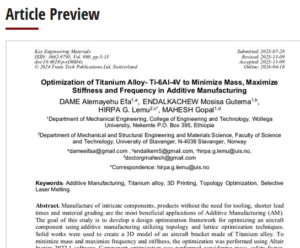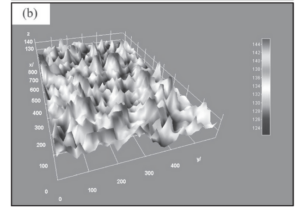Mahesh Gopal 1, Hirpa G. Lemu 2,* and Endalkachew Mosisa Gutema 1
1 Department of Mechanical Engineering, College of Engineering and Technology, Wollega University, Nekemte P.O. Box 395, Ethiopia
2 Department of Mechanical and Structural Engineering and Materials Science, Faculty of Science and Technology, University of Stavanger, N-4036 Stavanger, Norway
* Correspondence: hirpa.g.lemu@uis.no
Abstract
This study’s objective is to review the literature on the environmental impact of the additive manufacturing process. When this new manufacturing technology is employed, it aims to create a healthy environment free of pollutants. The work is motivated by the lack of universal guidelines on new design approaches, the classification of manufacturing materials, and processes that address environmental concerns. Using additive manufacturing over traditional subtractive technologies may result in considerable material and energy resource savings, especially if the component is appropriately designed for manufacture. In this scenario, additive manufacturing, regarded as
a potential breakthrough innovation, has grown in popularity in producing parts with complex geometry. AM encourages constant product development and flexible modifications that enable stakeholders to create better products faster. This study examines the state-of-the-art essentials of the fast-expanding manufacturing technique known as additive manufacturing (or 3D printing) and compares the environmental impact caused due to environmental issues. With increasing pressure on firms to provide transparency in their product sourcing and manufacturing processes, sustainability is no longer a distant goal but a strategic requirement. Manufacturers must also pay particular attention to their products’ total energy usage and overall environmental impact. . Download Full Article Here![]()
Keywords: additive manufacturing; environmental pollution; sustainable manufacturing; life cycle
assessment; energy modeling; energy consumption



